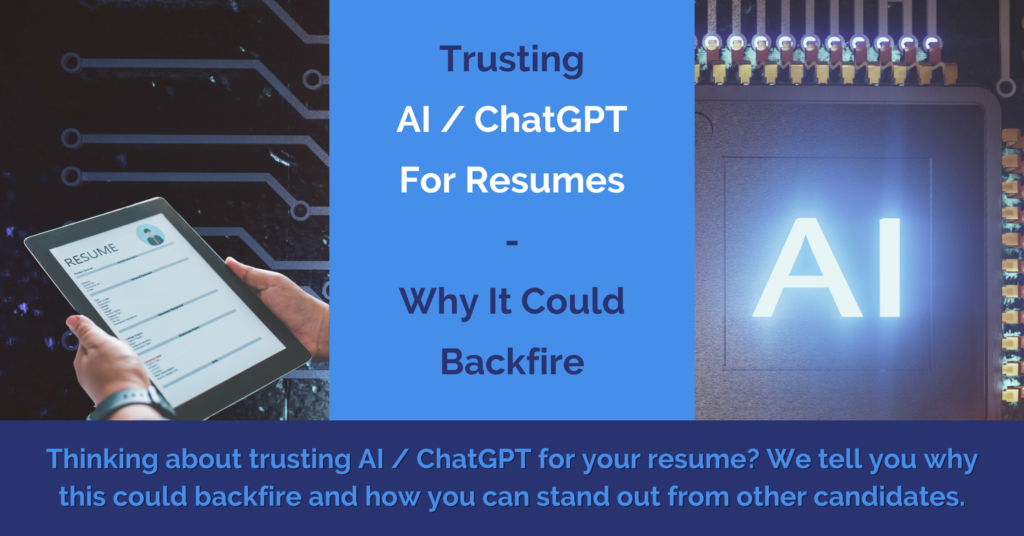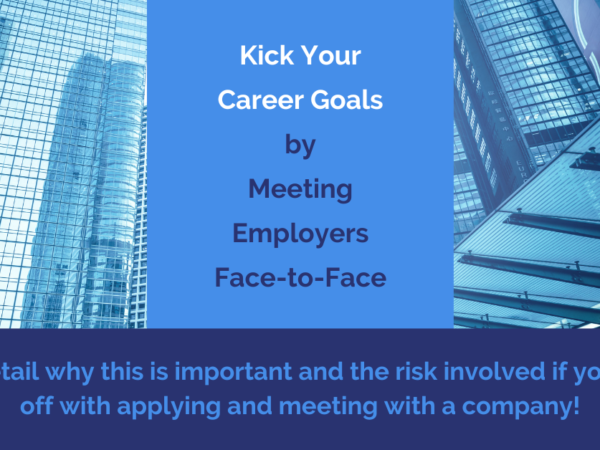As generative AI tools such as ChatGPT grow in popularity, it can be tempting to use AI to generate your resume, but it’s important to understand its limits – especially when it comes to something as personal as your resume. Let’s talk about why your resume must reflect you – not just what a job typically entails.

Why trusting AI for resumes misses the mark
Artificial Intelligence (AI) can easily outline the responsibilities of a Project Manager, Contract Administrator, or Site Manager. However, what it can’t do is highlight the specific tasks you excel at or provide real-life examples of how you performed well in those roles. That’s the key element recruiters and employers want to see.
Think about it – most recruiters already know the general duties of a Project Manager. What grabs their attention is what you brought to the table. How did you handle a particularly challenging project? What steps did you take to resolve an issue onsite or in the office? Sharing these real-life examples in your resume demonstrates not only your expertise but also your ability to succeed in a new role, even before you meet face-to-face, and can really make you stand out from other candidates.
How personalisation beats trusting AI for resumes
So, when you include real-life examples in your resume, it gives you an edge. You’re not just telling them what you did, you’re showing them how you did it, and why it mattered. This opens up opportunities for deeper discussions during interviews. Instead of a general conversation about the role, you get to steer the conversation toward your strengths by highlighting key moments in your career.
The role of AI in resume writing
So where does AI fit in? While it can be useful for polishing the presentation or formatting of your resume, the content – the experiences, skills, and achievements – should come directly from you. The story of your work, your achievements, and your growth is something only you can tell. And that’s exactly what employers want to hear.
A step-by-step guide to setting up your resume…
As we’ve discussed, including the right information in your resume shows you understand what’s important in your role and helps to reduce the perceived risk an employer might have about hiring you. Here’s what we’re looking to find out from your construction resume:
Key resume elements
1). Your qualifications
2). Companies you’ve worked for
3). … and for how long
4). The projects you’ve worked on
5). Your role on these projects, and
6). Your specific achievements on those projects
What should your project list include?
1). The name of the project and a brief description of it
2). The value of the project
3). Your specific role within that project
What should your achievements and challenges include?
1). What experience you gained from each employer
2). What you learnt
3). How have you built on your skills?
4). And what accomplishments have you had in previous roles that make you good at what you do
Remember though, don’t just list your achievements and challenges – provide concrete evidence of them! We encourage you to download our easy reference resume guide HERE
Looking for your next construction job? Search our current construction roles here, or to chat with our team about securing your next opportunity, get in contact with us through our Contact Us page.
Receive our updates straight to your inbox




